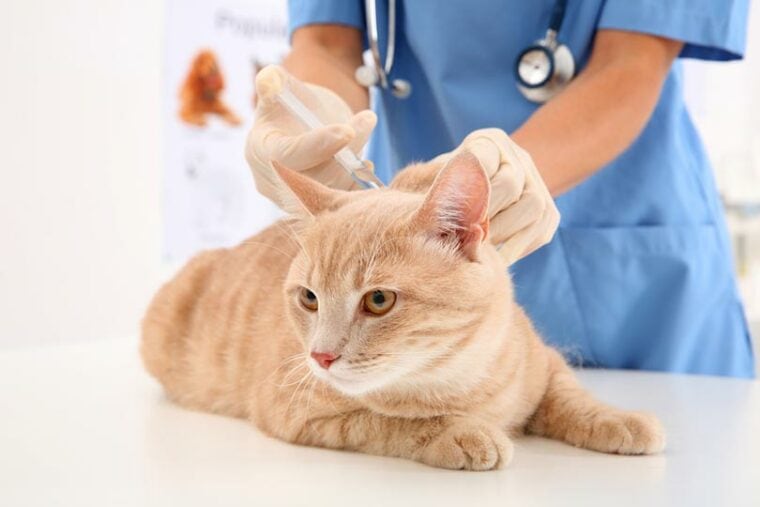
All cats, indoor or outdoor, should be administered core vaccines, as these protect them against diseases that are widely distributed or very dangerous. If your cat escapes from the house or you have to leave them at a pet hotel for several days, it is highly recommended, or even required, to have your cat vaccinated to prevent infection.
For your cat to be healthy and to be able to enjoy their company for a long time, you should vaccinate them regularly. Otherwise, your cat can contract a severe disease that could have serious consequences. In the worst-case scenario, it can even lead to their death. Talk to your vet about the best vaccination schedule for your cat.
What Should You Consider Before Vaccination?
There are not many things to take into consideration before vaccinating your cat. Just make sure your pet is the minimum age for vaccination, is dewormed regularly, and has no health conditions. In other words, your cat has to be clinically healthy to be vaccinated. The vet will evaluate your cat before vaccination.
Sick cats will not be vaccinated because their immune system would focus on the vaccine and not on the disease that they are suffering from1. If your cat is sick, a vaccine will give them zero or very little immunity.
At What Age Can I Vaccinate My Cat?
In the first couple of weeks of life, kittens are protected by the antibodies received from their mother through the milk and colostrum. Once these start to disappear from their body, they need to be vaccinated. The vaccination schedule begins when kittens are at least 6 weeks of age.
It is recommended to repeat the vaccine every 3–4 weeks until they are 16–20 weeks old. If your cat is already 16 weeks old or older at the time of vaccination, a single vaccine might be enough to give them immunity, but some cats need two in total. Then booster vaccines are given once a year or every 3 years, depending on the product and your cat’s lifestyle.
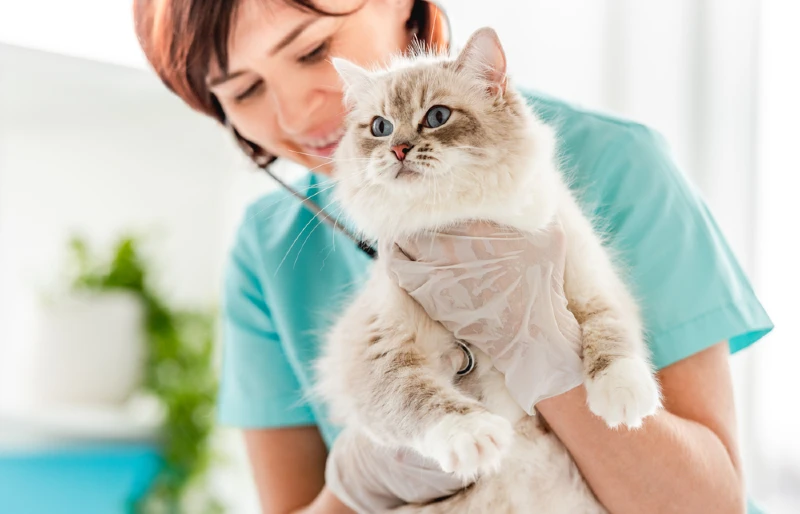
What Diseases Do Vaccines Protect Cats Against?
There are two types of vaccines for cats:
- Core (mandatory vaccines) are recommended for all cats.
- Non-core (optional vaccines) are recommended by the veterinarian based on your cat’s medical history and lifestyle (indoor/outdoor).
Core vaccines are administered to protect your cat from the following viruses:
- Feline leukemia virus (FeLV) (considered a core vaccine only in cats under 1 year of age)
- Rabies virus
- Feline panleukopenia virus (FPV)
- Feline calicivirus (FCV)
- Feline herpes virus type 1 (FHV-1) (causes feline viral rhinotracheitis)
1. Feline Leukemia Virus (FeLV)
Feline leukemia is a disease that can suppress the cat’s immune system and predisposes them to different infections, anemia, and even cancer. Kittens should be vaccinated at 8 weeks of age and receive a second dose 3–4 weeks later and 1 year following the last dose. Then, depending on your cat’s lifestyle, your vet will decide if they need to be revaccinated every 2–3 years or if they don’t need the booster. The disease commonly affects cats that live outdoors, but if your cat lives mostly indoors and likes to go outside occasionally, it is recommended to get them revaccinated.
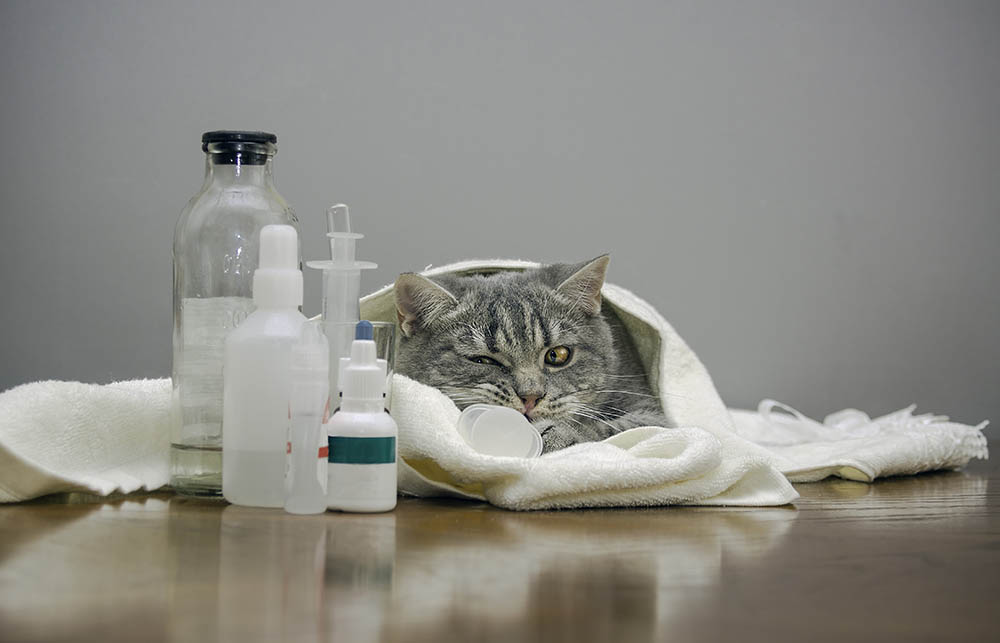
2. Rabies Virus
Rabies is fatal after infection. The anti-rabies vaccine offers protection not only to your cat but also to you because rabies is a zoonosis, that means it is transmitted from cats to humans, and it’s fatal. In general, cats that have access outside are the most exposed to the virus. The vaccine against rabies has to be given at 12 weeks of age, and the immunization is considered to be achieved 28 days after the vaccination. The vaccine must be repeated 1 year later and then every 1–3 years, depending on the vaccine used and the local regulations.
3. Feline Panleukopenia Virus
Feline panleukopenia virus is similar to the virus that causes parvovirus in dogs, and it is also called feline parvovirus. It is transmitted quickly from cat to cat and through infected surfaces and objects. The virus is highly resistant and can represent a life-threatening danger for all unvaccinated cats. It can be found in the feces of sick or healthy cats that overcome the infection. The vaccine should be given at 6–8 weeks of age, then every 2–4 weeks until 16 weeks of age, repeated at 12 months of age, and then once every 3 years.
4. Feline Calicivirus
Calicivirus is highly contagious and causes upper respiratory infections in cats (cat flu). Infected cats can transmit the virus through saliva or nasal and eye secretions. When infected cats sneeze, the airborne viral particles can be sprayed meters away through the air. People who have touched contaminated objects or an infected cat can also spread the virus. As a result, it is recommended to vaccinate your cat even if they only live indoors.
Vaccines do not offer complete protection, but they can greatly reduce the severity of the infection if your cat contracts the virus. There are two types of vaccines: nasal and injectable. Cats receiving the intranasal vaccine may sneeze for up to 7 days post-vaccination. Vaccination should be done at 6–8 weeks of age, then every 2–4 weeks until 16 weeks of age, and repeated at 12 months of age. The booster vaccine is given once every 3 years. If your cat lives in an environment with a high risk of infection, the vaccination should be done annually.
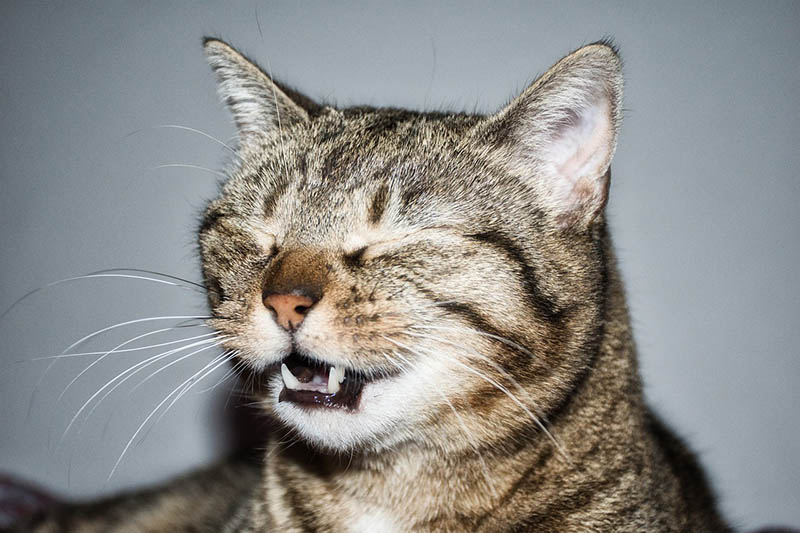
5. Herpes Virus Type 1
The disease is highly contagious and can be transmitted easily from cat to cat. It can lead to respiratory and eye problems. If left untreated, the disease can worsen and become fatal. Cats should be vaccinated starting at 6–8 weeks of age and then every 2–4 weeks until 16 weeks of age. The first booster should be given at 12 months of age and, depending on the risk, your vet may recommend annual vaccinations for cats that go outside or once every 3 years for indoor cats.
Non-core vaccines are administered to protect your cat from the following pathogens:
- Bordetella bronchiseptica
- Chlamydophila felis
1. Bordetella Bronchiseptica
This bacterium causes upper respiratory tract infections in cats, being highly contagious. Usually, vaccination against this bacterium is recommended for cats that live in large colonies or spend time outside. Vaccination is given intranasally as early as 4 weeks of age, with annual boosters only for cats at high risk.
2. Chlamydophila/Chlamydia Felis
The vaccine against this bacterium is given at the age of 9 weeks. It is mostly given to kittens or households with multiple cats where the infection has been confirmed. The disease can affect the cat’s eyes and manifests through unilateral or bilateral conjunctivitis. The pathogen can be transmitted from infected cats to humans, so make sure you wash your hands thoroughly after you touch an infected cat.
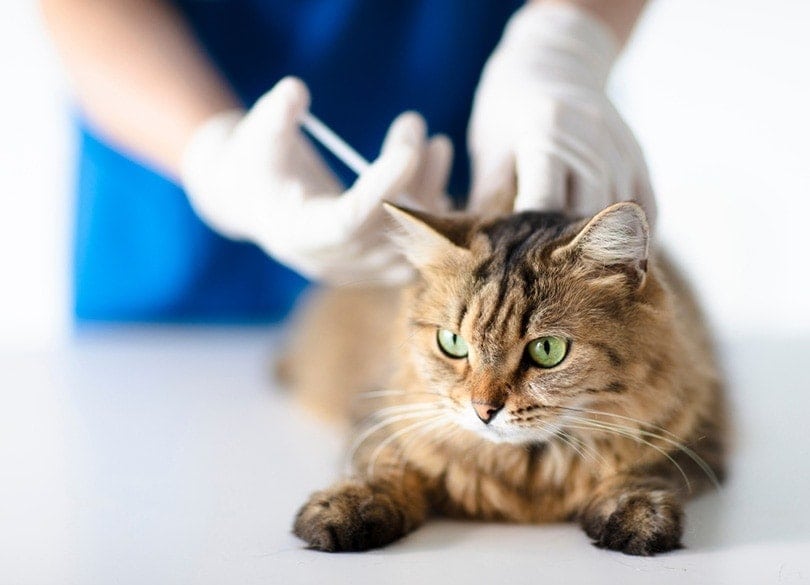
Conclusion
Cats that live indoors must be vaccinated. Even if they don’t go outside at all, they still present a risk of getting infected with certain pathogens. Also, you can be a source of infection, even if you don’t bring other (sick) animals into your home. Vaccination starts at the age of 6–8 weeks, and continues until kittens are weeks of age. Boosters are generally given 1 year later and then annually or once every 3 years, depending on the product and risk. Your vet will create a vaccine plan tailored for your cat’s needs, but generally speaking, cats that live only indoors can receive booster vaccines once every 3 years.
Featured Image Credit: Africa Studio, Shutterstock









